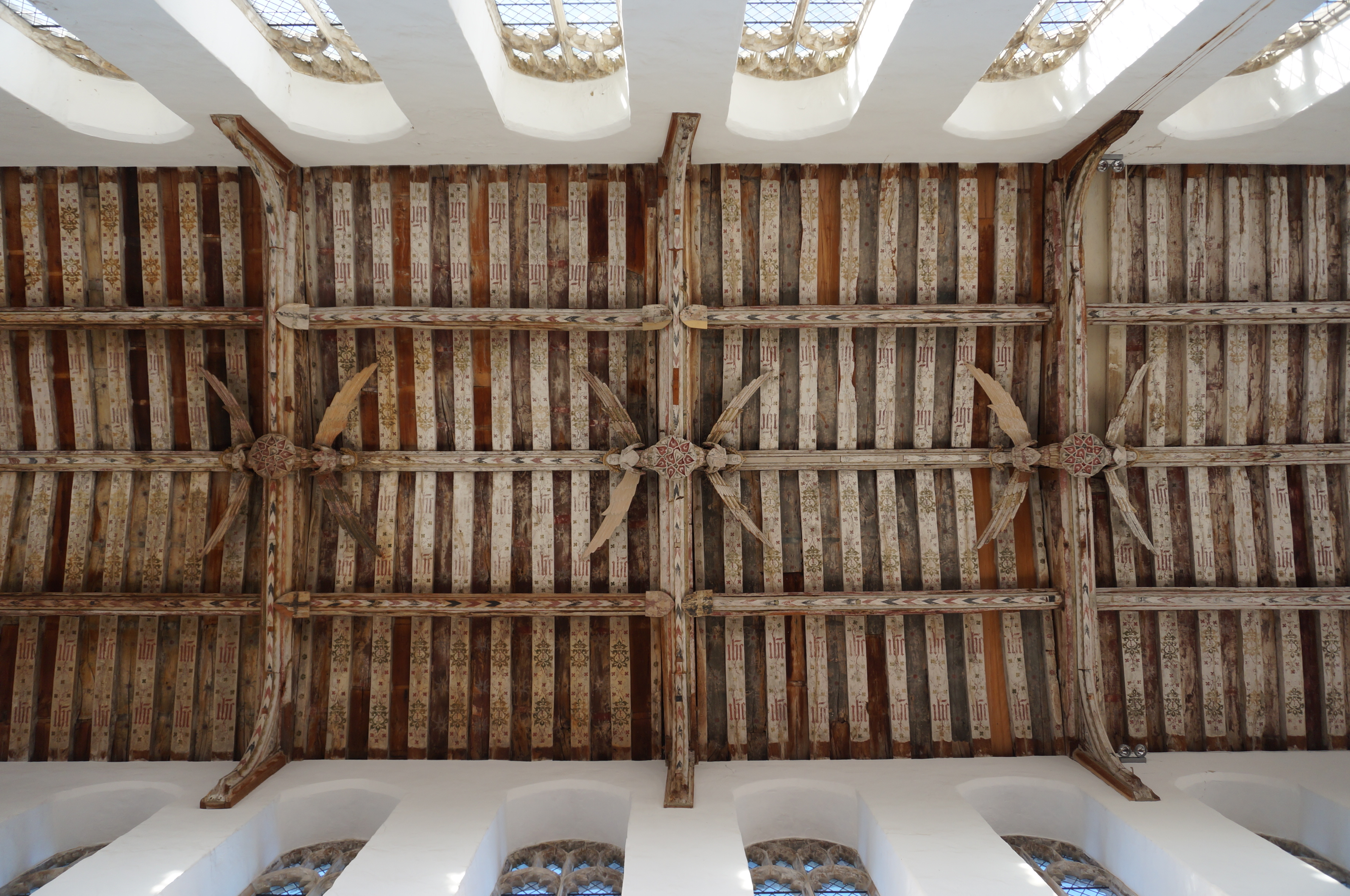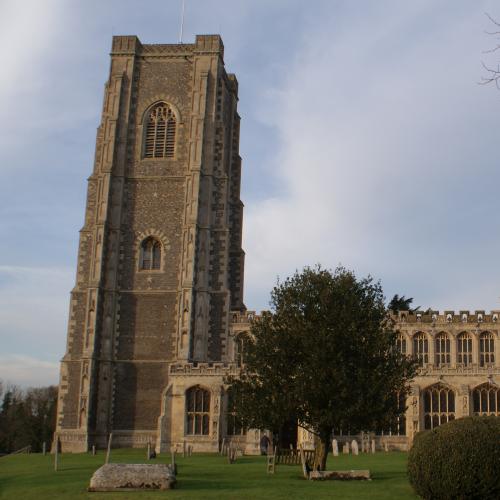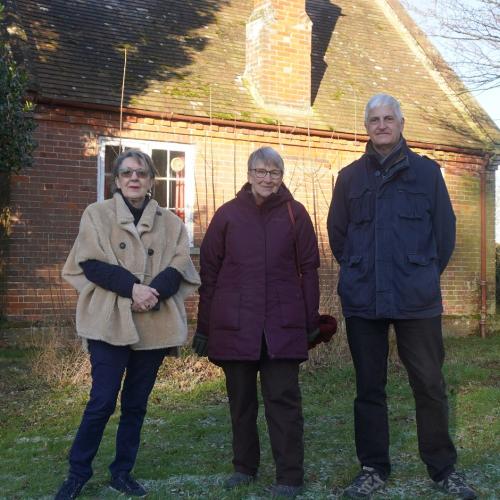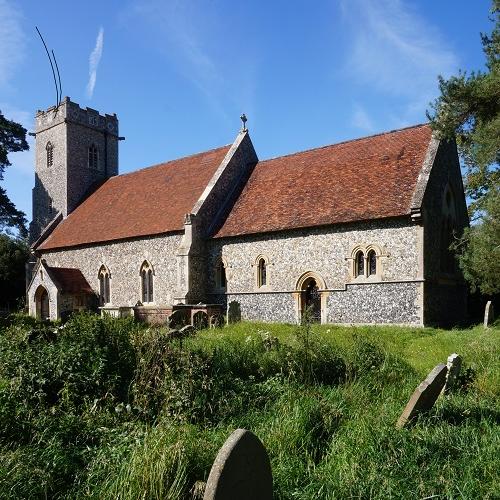
What is the DAC?
- The DAC is a body of experts on church buildings and related areas, which includes your Archdeacon.
- The DAC advises rather than decides.
- It provides expert advice on technical and other specialist matters to the Chancellor when he is determining a faculty application.
- The advice is provided free of charge
- A positive recommendation takes the form of a 'Notification of Advice'.
- The Committee meets five or six times a year, usually on the second Friday of each month, to consider new or ongoing applications.
How to approach the DAC
- The first stage in obtaining a faculty is to approach the Diocesan Advisory Committee (DAC) and the DAC team can explain how to submit an application and what documents you’ll need to provide if you’ve never done this before.
- Your application doesn’t have to be complete in every detail to approach the Committee. In fact, if you’re planning something big, it’s much better to do that before you’ve commissioned any design work.
- We’re keen to help you make sure your church building is fit for purpose - though it may be many centuries old, nobody expects you to manage in the 21st century without essential facilities such as toilets, a place to make refreshments, proper heating or lighting.
- We want to help you to make your church building accessible to disabled people
- We are here to help you meet the Church of England carbon net-neutral by 2030.
DAC visits
The DAC may decide to send a visiting party to your church to discuss your project. If that happens, please don’t worry – this isn’t an inspection or an exam, and you’re not being tested on your ability to give the correct answers.
- A visit enables them to offer you much better guidance having seen and heard first-hand about what you want to achieve and why.
- Though occasionally we may suggest doing something differently, we’re keen for you to find a solution that everyone can support.
DAC Committees
Projects will be discussed at the DAC Committee, we will write to you to tell you the outcome. Please read carefully any written advice as it will explain the next steps that you’ll need to take.
The meeting dates for 2025 as are follows:
Thursday 6 November
Thursday 4 December
The meeting dates for 2026 are as follows:
DAC Architects Meeting – Friday 16 January 2026 (AM)
DAC Full Committee Meeting – Thursday 12 February 2026 (AM)
DAC Architects Meeting – Friday 13 March 2026 (AM)
DAC Full Committee Meeting – Thursday 16 April 2026 (AM)
DAC Architects Meeting – Friday 15 May 2026 (AM)
DAC Full Committee Meeting – Thursday 4 June 2026 (AM)
DAC Full Committee Meeting – Thursday 2 July 2026 (PM)
DAC Architects Meeting – Friday 10 July 2026 (AM)
DAC Full Committee Meeting – Thursday 3 September 2026 (AM)
DAC Architects Meeting – Friday 9 October 2026 (AM)
DAC Full Committee Meeting – Thursday 5 November 2026 (AM)
DAC Architects Meeting – Friday 3 December 2026 (AM)
DAC Full Committee Meeting – Thursday 17 December 2026 (AM)
Applying for permissions
What work requires which permissions is laid out in List A and B.
- List A is the work you can do without anyone's permission.
- List B requires the approval of your Archdeacon.
- Everything else requires a Faculty.
List A and List B | PDF
How to apply for List B or a Faculty
You can apply for List B or a Faculty by visiting the online Faculty portal and registering an account.
Online Faculty Portal | Webpage
If you experience any difficulties with the portal please refer to the page of frequently asked questions on their website here or have a look at the user manual here. If neither of these options help, please email Edmund Harris, the DAC Secretary for further information.
- We’re always happy to explain what makes a good application, but the golden rule is to be as clear as possible - what you want to do, why you want to do it and what the end result will be.
- If you’re applying for a full faculty, you may need to include Statements of Significance and Needs. You can find more information on putting together those documents here.
- It is essential to show that the proposal is supported by the parish, for both List B and faculty applications, you’ll need to provide details of the relevant PCC resolution.
- No fee is applicable at this stage in the process.
Timings and deadlines
Some faculty applications can be decided quickly, while some may take several rounds of discussion. There are several built-in statutory requirements that have a major bearing on the timescale:
- Every faculty involves displaying a public notice for 28 days to give any interested persons a chance to comment on the work that you want to do.
- A faculty is only valid for a limited period, and the work that it authorises must be completed by a set date - lease take careful note of that date when you receive the faculty.
- It’s possible to extend a faculty in most circumstances, but you need to do that before it has expired, otherwise you may have to start the application process all over again.
- Often the necessary work isn’t always able to start as soon as the faculty has issued. Contractors and conservators able to work with historic buildings aren’t numerous and are often over-subscribed, particularly specialists like thatchers. Some suppliers of equipment also have long lead times. Please check with them if work has to start or be completed by a set deadline.
If you need to start or finish the work by a set date please let us know as soon as possible, so we can aim plan things to ensure you meet the deadline.


